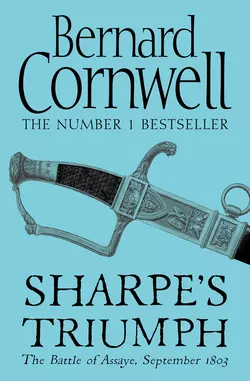Sharpe’s Triumph: The Battle of Assaye, September 1803

Bernard Cornwell
Тип: электронная книга
Жанр: Современная зарубежная литература
Язык: на английском языке
Стоимость: 612.81 ₽
Статус: В продаже
Издательство: HarperCollins
Дата публикации: 16.04.2024
Отзывы: Пока нет Добавить отзыв
О книге: Richard Sharpe, now a sergeant, and his unit are attacked by apparent allies.Determined to uncover the traitors and avenge the killing of his men, Sharpe travels far into enemy territory, encountering once again his fearsome opponent, Obadiah Hakeswill. Their old quarrel over the death of the Tippoo Sultan and the whereabouts of his treasure resurfaces, and a warrant is issued…